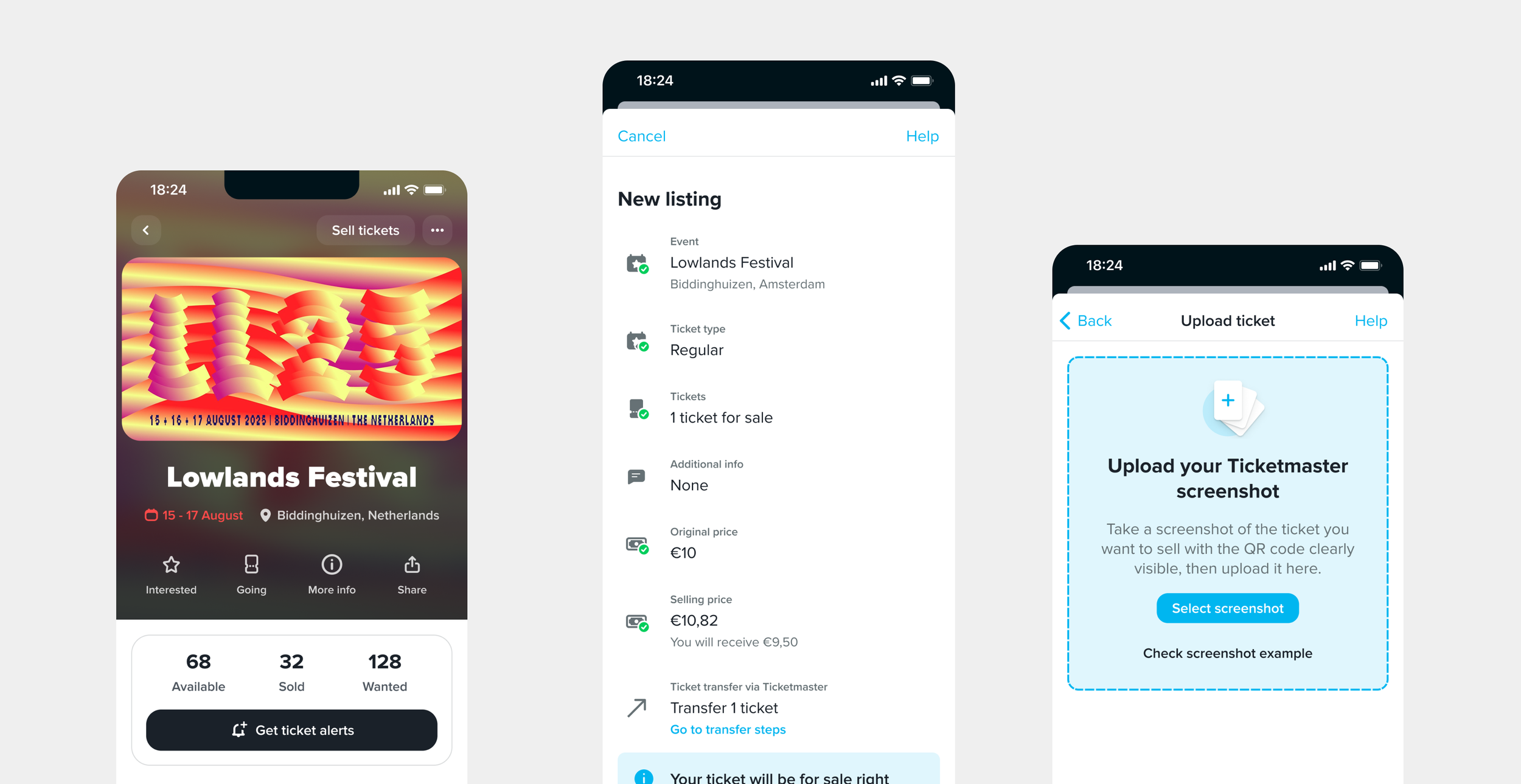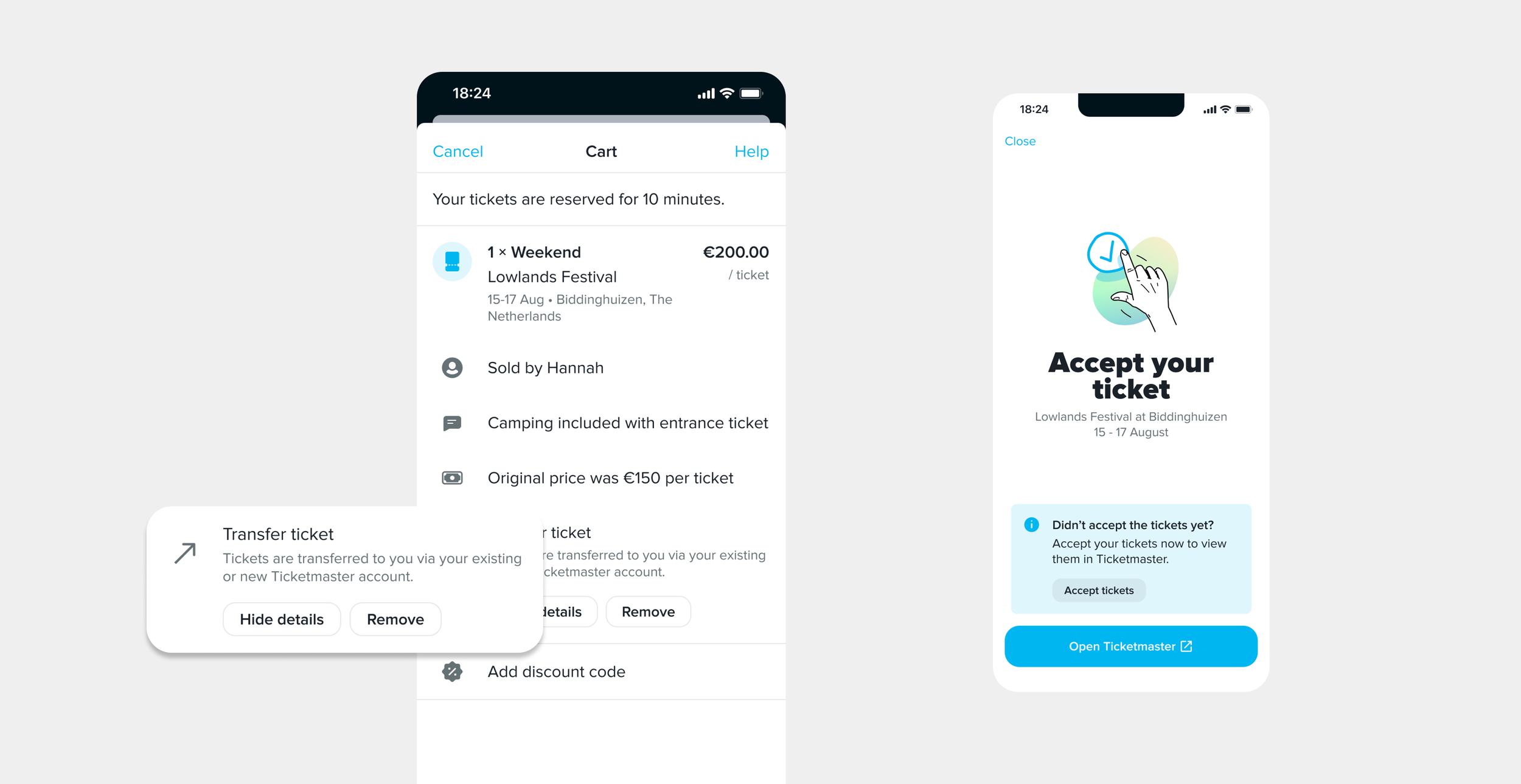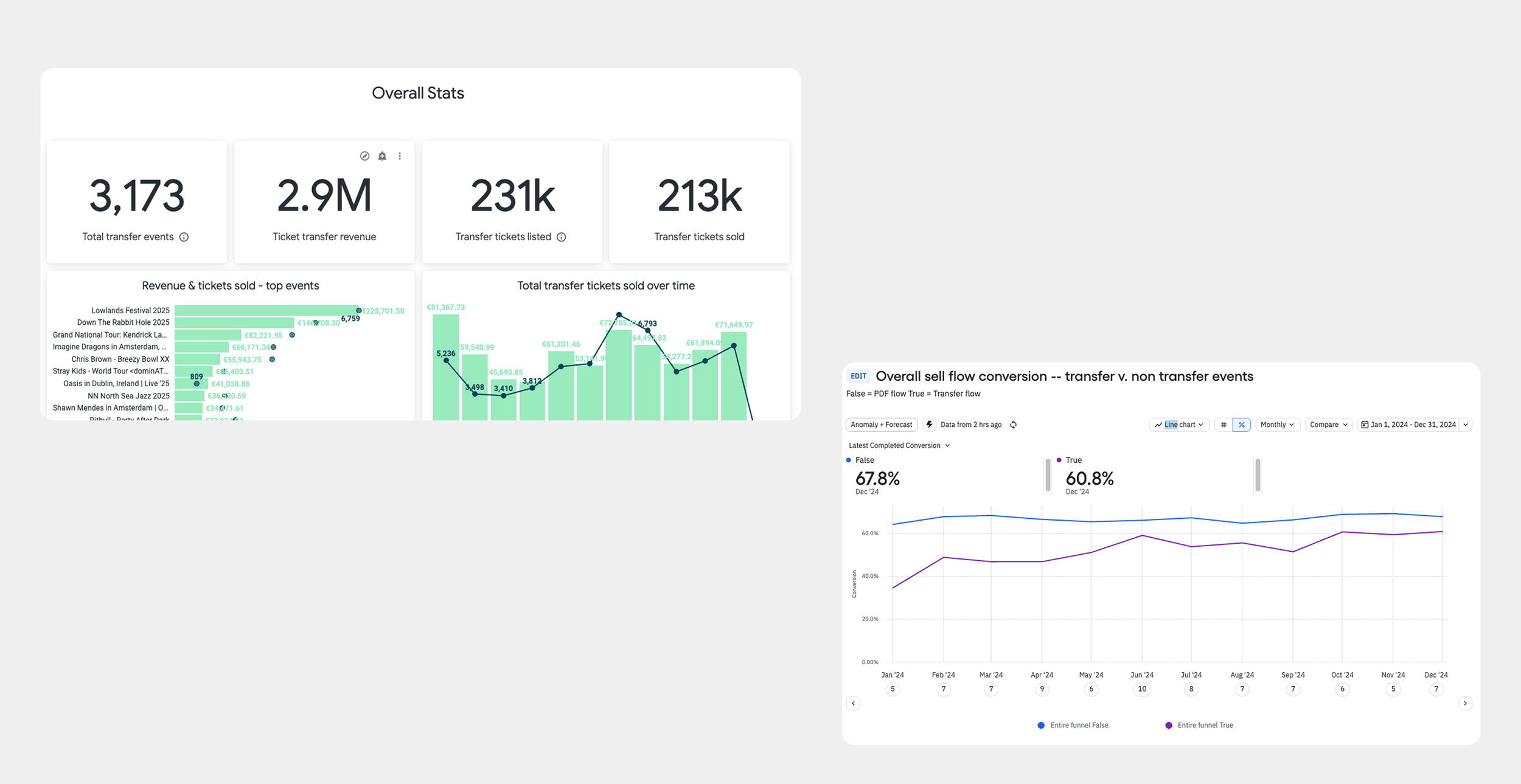Unlocking €2.9M in revenue: Designing mobile-only ticket resale for TicketSwap
TicketSwap is a marketplace for secondhand tickets with over 17 million fans across 42 countries.
In early 2023, TicketSwap faced a major change in the ticketing industry. Primary ticketing companies were abandoning .PDF tickets in favor of mobile-only formats. Our platform, built exclusively around .PDF uploads, couldn’t process these tickets and that locked us out of 8 to 25% of all events and threatening millions in revenue.
The Challenge
If we couldn’t adapt to the market, we’d lose major festivals like Lowlands (NL) and key international markets such as UK and Spain. Competitors, primarily the ticketing companies themselves, already had resale channels. Ticketmaster being the holder of the main events for our secondary market in the Netherlands in terms of revenue.
The challenge to our team was: Can we make a solution that doesn’t require a .PDF but yet is safe and simple to the fans?
And the ask from management was: You have three months to design and develop a solution to test before Lowlands’ sale.
Process & My Role
As the Lead Designer and part of the Sell Flow Team, I led competitor analysis, designed the end-to-end flow (UI/UX), ran user testing sessions, and iterated based on user feedback. I collaborated daily with the PM, Engineers (Quality, Backend, iOS, Android & Web), User Researcher, Data Analyst and UX Writer.
The process consisted of:
Ticketmaster flow audit identifying possibilities and constraints.
Competitor audit
Based on scope, deadline and user impact identify the Now, Next, Later of the feature.
Prototypes and user interviews.
The solution
Use Ticketmaster’s built-in ticket transfer feature and design a guided, multi-step flow:
Seller starts the listing in TicketSwap
Uploads a screenshot of the QR code from the ticket app.
Transfers the ticket to a unique TicketSwap email address.
Finish the listing adding additional information and price.
We verify the screenshot with OCR, hold the ticket, and transfer it to the buyer after sale.
Unlike .PDF flows, sellers now had to navigate between two apps. Clear instructions, contextual tips, and microcopy were critical to reducing friction.
Results
€2.9M in revenue generated in 18 months (revenue that otherwise would have been lost)
213k tickets sold across 2,295 events
Lowlands was our top selling event with €225,701.50 in revenue
Seller conversion rate: 60.8% (healthy vs. 67.8% pdf flow)
Refund rate held at 2.8% (fraud remained low)
Unlocked UK and Spanish markets where mobile-only tickets dominate
— This feature preserved a critical part of TicketSwap’s business and positioned us for growth. More importantly, it proved we could adapt complex flows under time pressure while maintaining user trust.
Follow up Iteration - Where we are now
After the success of Lowlands, we ran a post-mortem analysis of all events that we launched the transfer feature to check the fraud numbers. We realised the numbers were very similar to the .PDF flow. So we took a bet and released a V2 that didn’t require the upload of a screenshot and rely on the validation of the transfer email. We are phasing out the V1 to the V2 progressively with good results so far.



